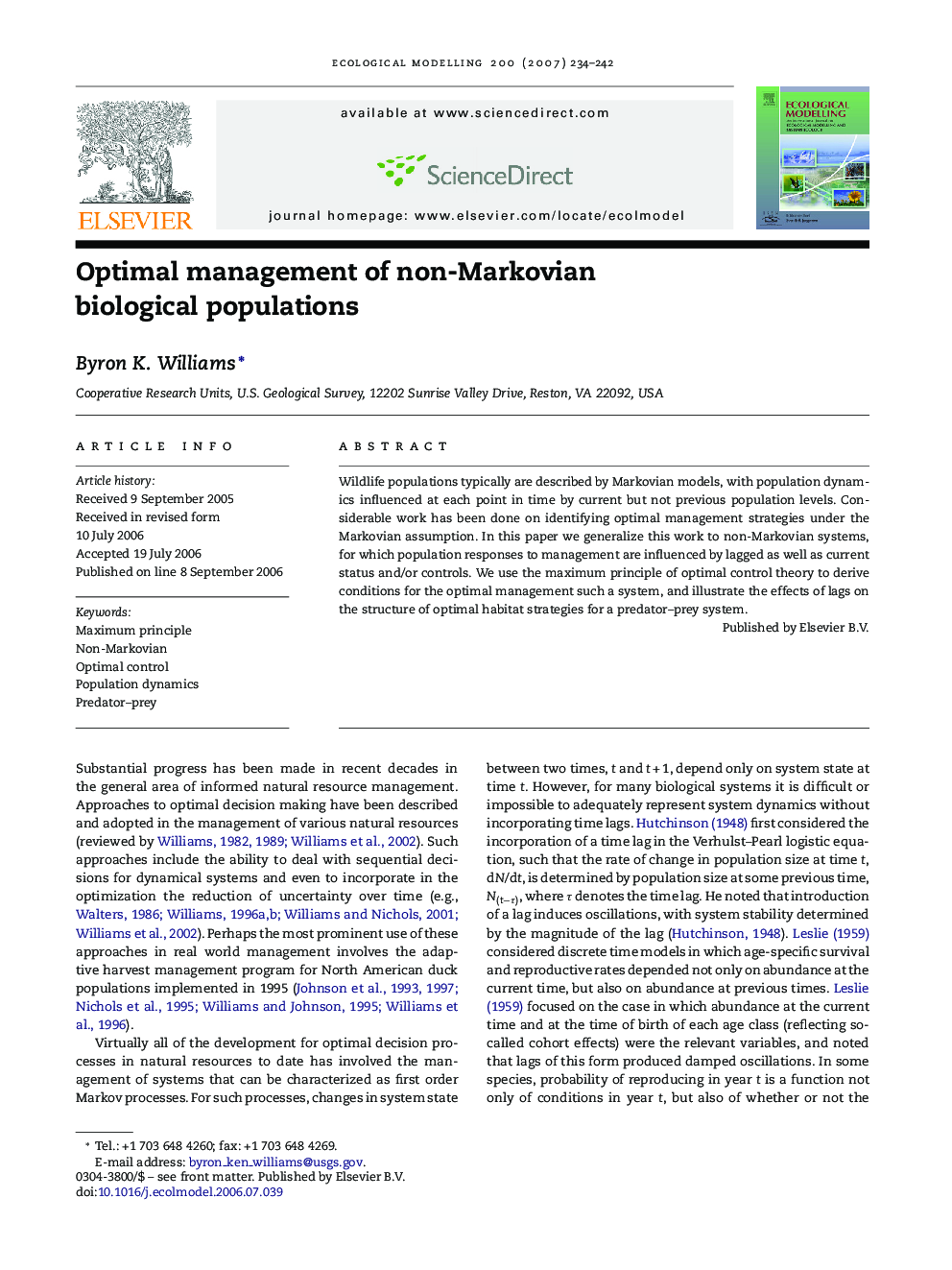| Article ID | Journal | Published Year | Pages | File Type |
|---|---|---|---|---|
| 4378882 | Ecological Modelling | 2007 | 9 Pages |
Abstract
Wildlife populations typically are described by Markovian models, with population dynamics influenced at each point in time by current but not previous population levels. Considerable work has been done on identifying optimal management strategies under the Markovian assumption. In this paper we generalize this work to non-Markovian systems, for which population responses to management are influenced by lagged as well as current status and/or controls. We use the maximum principle of optimal control theory to derive conditions for the optimal management such a system, and illustrate the effects of lags on the structure of optimal habitat strategies for a predator-prey system.
Related Topics
Life Sciences
Agricultural and Biological Sciences
Ecology, Evolution, Behavior and Systematics
Authors
Byron K. Williams,
